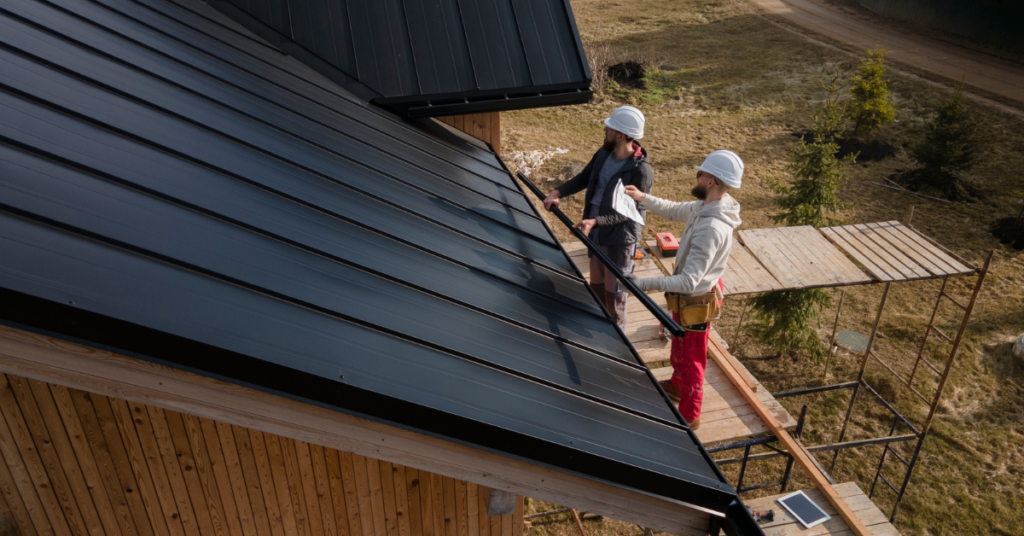Do it the RIGHT way: Security Deposit 101
When starting a lease with a new tenant, some landlords tend to be careful as they are entrusting their property to another person. They want to be sure that their new tenant will abide by a set of rules and regulations as agreed in their lease. To secure that, landlords can collect a security deposit…

When starting a lease with a new tenant, some landlords tend to be careful as they are entrusting their property to another person.
They want to be sure that their new tenant will abide by a set of rules and regulations as agreed in their lease. To secure that, landlords can collect a security deposit from their tenants.
However, before collecting anything from your tenant, you should familiarize yourself with any existing laws you have to follow.
What is a Security Deposit
A security deposit is a certain amount that a tenant gives to his landlord. This serves as a guarantee that he will follow their rental agreement.
This also covers as an insurance for the landlord to cover any damage, unpaid rents, any liabilities the tenant may have or any unfulfilled conditions in their lease agreement.
How much is the security deposit you can collect from your tenants?
Laws about security deposits may vary per state. A landlord should be aware of any laws to comply with collecting a security deposit.
As per Section 15B of Chapter 186 of the General Laws of Massachusetts, a landlord can collect a security deposit from their tenants.
However, they have a limit when it comes to collecting the deposit. Landlords cannot charge a security deposit from their tenants more than the amount of their one month’s rent.
The charge can be equal to their monthly rent or lower depending on the type of the property.
A Massachusetts landlord can also request for a last month’s rent paid in advance and the cost for a new lock and key.
How does it work?
After receiving the security deposit from your tenant, there are several things you have to do. There are notices you have to send your tenants about their security deposit.
First, the landlord or their property manager must issue a written receipt stating the following:
- The amount of the security deposit
- The name of the person who received the deposit. If it is the Property Manager who received it, he should still include the landlord’s name in the receipt
- The date when it was received
- The description of the rental property
- The landlord’s or Property Manager’s signature
Second is the Statement of Condition Notice. This is to be sent to the tenant within 10 days of receiving the security deposit.
This separate notice should indicate the condition of the property the tenant is moving into. It should be indicated if there are any existing damages in the unit before the tenant moves in, any health or building code violations should be indicated too.
After the tenant receives the notice, they can also send theirs and provide their list of damages in the property within 15 days.
As a landlord, review the notice your tenant sends you, if you agree with it, you can sign it. However, if you disagree with the listed damages of your tenant in the property, you can attach a document to state your dispute.
The third notice is where you keep the security deposit. The landlord must let the tenant know where they keep the security deposit within 30 days.
The written notice includes the name and address of the bank, the interest rate, the amount deposited and the account number.
This is very important and every landlord needs to send this notice.
If a landlord fails to send this notice, the tenant can request a full refund of their security deposit immediately.
The landlord is also responsible for sending the tenant a yearly written statement regarding their security deposit.
The statement includes the name and address of the bank, the interest rate, the amount of the security deposit, how much interest will be paid, and the account number for the security deposit.
Who owns the security deposit
Once you receive the security deposit, it should be stored somewhere secured. In Massachusetts, landlords should place the security deposit in an interest-bearing account in a bank.
The security deposit should be separate and not be stored with other funds.
The landlord’s responsibility is to give the tenant their security deposit’s annual interest. It can be a five percent interest rate or depends on what the bank’s interest rate is.
The tenant also has the option to use their interest as a deduction to their next month’s rental fee. In any case that the tenant does not renew or end their contract before a full year of their lease, the landlord needs to give the tenant the full interest accumulated on their security deposit.
This should be done within 30 days after the end of their lease.
When can a landlord keep the security deposit?
There are some reasons where the landlord can keep their tenant’s security deposit. They can keep a part or keep the full deposit if a tenant has any:
- unpaid rent
- unpaid utility bills
- any unpaid real estate taxes that they were required to pay
- they caused damage to the property
Records to Keep
The landlord is responsible for keeping a record of all the units he has collected a security deposit from. The document should contain a detailed description of the property and any damages done.
The landlord should also record if the damages were repaired and when the repairs were made, along with the cost and any receipts related to it. The landlord should also include all the copies of the notices he sent to his tenants like the security deposit receipt and statement of condition. Also, include when the tenant has terminated the lease.
Keeping organized documents can help you in times you need to keep a portion of the security deposit from your tenant if necessary.
How can these documents affect you
Tenants are also allowed to check on these records upon request. If you fail to provide it to them, the tenant can request a full refund of the security deposit and the interest accumulated. Landlords must keep these records for at least 2 years after the lease ended.
After the end of the tenant’s lease, the landlord needs to return the security deposit, less any deductions, within 30 days. The landlord must give an itemized list of deductions and describe the damages, the cost of repair and the receipts to their tenants.
How can property management companies help with security deposits
Collecting a security deposit requires documentation and responsibilities. If a landlord forgets to remember sending one notice, the tenant can request a full refund right away.
Getting a Property Management Company to help you with tasks like collecting the security deposit from your tenant and taking care of all the documentation and record-keeping is the best solution.
They can do all the work, from receiving the security deposit, keeping it in a Massachusetts bank, give all the notices to your tenants and keep all the records required.
You as a landlord can have peace of mind and have more freedom in your hands.
Do you need help from an expert Property Manager?
Green Ocean Property Management has a team of expert and knowledgeable Property Managers. They can help you with handling the task of collecting the security deposit.
Our expert property managers know the Massachusetts law about security deposits by heart. You are assured that no tasks are left behind.
We have a structured and organized way of keeping all records that landlords and tenants can get access to anytime.
Give us a call or email us now.
Reach us at hello@greenoceanpm.com or call 617-487-4868. You may also visit our office at 268 Centre St Newton MA 02458.
Wearing our Brand
Our branding makes us stand out among the rest—or at least identifies and distinguishes us from the next person. In today’s article, we explain how wearing our brand takes our identity to the next level and reminds us of our mission as your dedicated property manager. The Importance of Wearing our Brand So…
How We Market Your Property
At Green Ocean Property Management, we are dedicated to providing exceptional property management services throughout the vibrant city of Boston. Renowned for its rich history, diverse neighborhoods, and dynamic rental market, Boston offers unique opportunities and challenges for property owners and tenants alike. In this blog post, we will explore the various service areas we…
Protecting Your Property Through Seamless Gutter Installation
When it comes to property maintenance, attention to detail is paramount. At Green Ocean Property Management, we understand that even seemingly minor components like gutters play a crucial part in maintaining the integrity of a building. Today, we’re sharing insights into our gutter installation process, designed to ensure durability and efficiency. Discover how our proactive…








